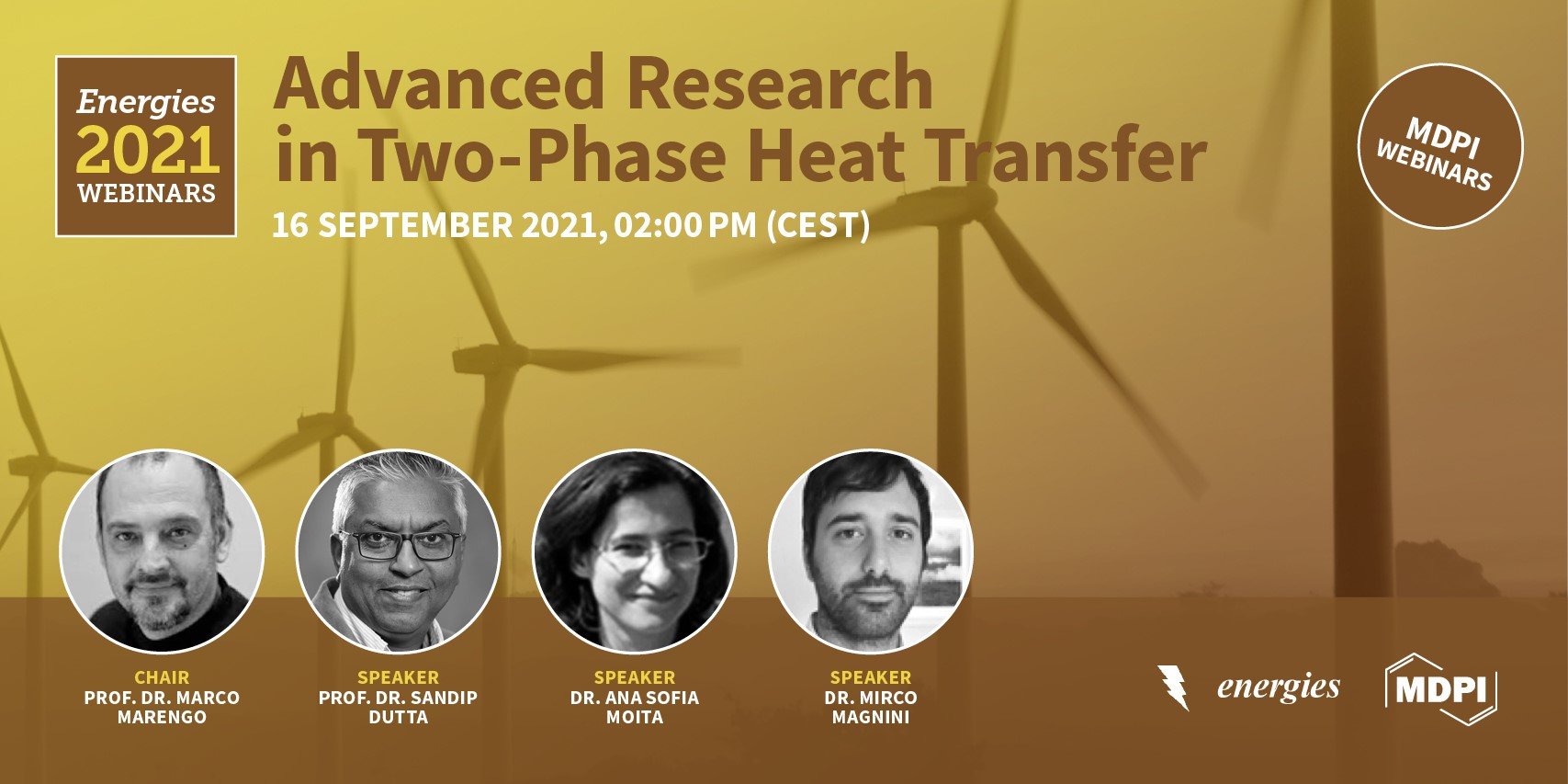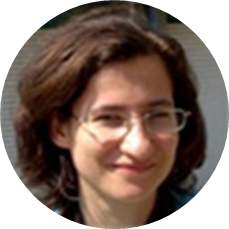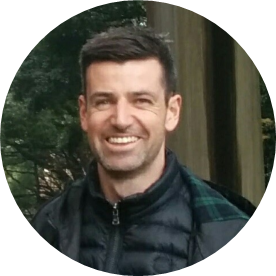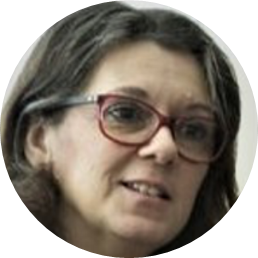
Journal Menu
► ▼ Journal Menu-
- Energies Home
- Aims & Scope
- Editorial Board
- Reviewer Board
- Topical Advisory Panel
- Instructions for Authors
- Special Issues
- Topics
- Sections & Collections
- Article Processing Charge
- Indexing & Archiving
- Editor’s Choice Articles
- Most Cited & Viewed
- Journal Statistics
- Journal History
- Journal Awards
- Society Collaborations
- Conferences
- Editorial Office
Journal Browser
► ▼ Journal BrowserNeed Help?
Announcements
18 September 2021
Energies — Call for Special Issue Proposals
Energies (ISSN: 1996-1073) is calling for Special Issue proposals for the following 32 Sections:
- Electrical Power and Energy System
- Energy Fundamentals and Conversion
- Energy Sources
- Energy Storage and Application
- Sustainable Energy
- Thermal Management
- Energy Economics and Policy
- Hydrogen Energy
- Energy and Buildings
- Geo-Energy
- Energy and Environment
- Bio-Energy
- Solar Energy and Photovoltaic Systems
- Wind, Wave and Tidal Energy
- Smart Grids and Microgrids
- Advanced Energy Materials
- Electric Vehicles
- State-of-the-Art Energy Related Technologies
- Fuel
- Electrochem: Batteries, Fuel Cells, Capacitors
- Nanoenergy
- Carbon Energy
- Nuclear Energy
- Clean Energy
- Energy Chemistry
- Energy and Climate Change
- Energy and Combustion Science
- Critical Energy Infrastructure
- Artificial Intelligence and Smart Energy
- Exergy
- Energetics
- Smart Cities and Urban Management
The following topics may be covered in forthcoming Special Issues of the journal:
|
Energy markets Energy policy Renewable energy transition Energy management of EV Intelligent transportation systems Ground/air/underwater vehicles Entropy generation Thermal conductivity Nanofluids Power harvesting Wireless networks Power converters Modeling of wind turbines Aerodynamics of wind turbines Wind farm optimization Data science for building Building physics Smart building energy Battery energy storage Optical and electronic magnetic material Catalysis and energy |
Demand response Power flow Forecasting (load, electricity price, wind, and solar) Electrical energy storage Carbon capture and storage Greenhouse gas emissions Sequestration of carbon dioxide Geothermal energy extraction Petroleum exploration and production Materials for solar cells Photovoltaic system Solar photocatalysis Catalysis in hydrogen production Fuel cell systems Bio-hydrogen Life cycle assessment Low carbon energy technologies Energy footprints Biogas Lignocellulosic biomass Biomass thermochemical conversion |
Any other proposals within the scope of the journal are also welcome; for further information please see: https://www.mdpi.com/journal/energies/about.
The following information is required to be submitted: Special Issue title, introduction, and planned paper list.
The duties and benefits of serving as a Guest Editor are as follows:
- Re-defining the title and scope of this Special Issue;
- Making decisions on whether a manuscript can be accepted based on the reports we collect;
- Promoting the Special Issue and increasing its visibility at related academic conferences.
Guest Editorship: 2–3 editors in a team. This should balance the workload for the editors and enable an internal discussion in case any controversial issues arise. Moreover, as the Guest Editors have different research networks, the cooperation would broaden the coverage of potential authors, thereby increasing the influence of the Special Issue. Once your proposal has been approved, you can start organizing a team. The Publisher and Editor-in-Chief will review these co-editors to ensure that they meet the journal’s editorial requirements. We encourage teams to include editors from multiple institutions and locations. This diversity reduces potential conflicts of interest and helps the Special Issue reach a wider audience.
If you are interested in editing a Special Issue, please contact us before 31 December 2021. To propose or request further information, please contact the Energies Editorial Office (energies@mdpi.com). We look forward to hearing from you soon.
Energies (ISSN 1996-1073; IF 3.004, CiteScore: 4.7) is a peer-reviewed open access journal in energy engineering and research. It has been indexed by the Science Citation Index Expanded (Web of Science), Scopus, Ei Compendex, and other databases. Energies is committed to rapid publication. A first decision is provided to authors approximately 16 days after submission, and once accepted, an article is published in less than four days. The website of Energies can be accessed here.
14 September 2021
Recruiting Editorial Board Members for the Section “Energy and Environment” of Energies

We are now recruiting Editorial Board Members (EBMs) for the Section “Energy and Environment” (https://www.mdpi.com/journal/energies/sections/energy_environment) of Energies. If you are an active researcher in the field and passionate about publishing cutting-edge research, please do not hesitate to contact the Section Managing Editor Mr. Charles Huang (email: charles.huang@mdpi.com).
Energies is an international, peer-reviewed, and open access journal on the study of energy engineering and research. Energies was launched in 2008 and has published more than 12,000 articles in various formats (including articles, reviews, communications, etc.). The journal is indexed by Science Citation Index Expanded, Scopus, Compendex, and other relevant databases. The 2020 Impact Factor of Energies is 3.004.
Benefits of Energies Editorial Board Members include the following:
- Publishing one paper free of charge per year in Energies, and potential discount for additional papers you invite;
- A recognition certificate as an Editorial Board Member of Energies;
- Additional sponsorships for conferences organized by Editorial Board Members;
- Travel grants of CHF 500 per year for conferences that you attend or organize.
Responsibilities of Editorial Board Members include the following:
- Supervising the editorial process, including prescreening submissions and making final decisions on whether to accept or reject papers;
- Contributing your work and inviting three papers to Energies (the Editorial Office will prepare the list of potential authors and the invitation template);
- Choosing to edit a Special Issue on a topic related to your research, or recommending potential topics and Guest Editors;
- Promoting Energies and published papers among your peers or at conferences that you attend or organize (through materials such as flyers or business cards, which can be designed and shipped to your office).
If you have any questions, suggestions, or recommendations, please do not hesitate to let us know. We look forward to working with you in the future.
8 September 2021
Recruiting Editorial Board Members for the Section “Nuclear Energy” of Energies

We are now recruiting Editorial Board Members (EBMs) for the Section “Nuclear Energy” (https://www.mdpi.com/journal/energies/sections/Nuclear_Energy) of Energies. If you are an active researcher in the field and passionate about publishing cutting-edge research, please do not hesitate to contact the Section Managing Editor Mr. Stephen Wang (email: stephen.wang@mdpi.com).
Energies is an international, peer-reviewed, and open access journal on the study of energy engineering and research. Energies was launched in 2008 and has published more than 12,000 articles in various formats (including articles, reviews, communications, etc.). The journal is indexed by Science Citation Index Expanded, Scopus, Compendex, and other relevant databases. The 2020 Impact Factor of Energies is 3.004.
Benefits for Energies Editorial Board Members include the following:
- Publishing one paper free of charge per year in Energies, and a potential discount for additional papers you invite;
- A recognition certificate as an Editorial Board Member of Energies;
- Energies will offer additional sponsorships for conferences organized by Editorial Board Members;
- Travel grants of 500 CHF per year for conferences that you attend or organize.
Responsibilities of Editorial Board Members include the following:
- Supervising the editorial process, including prescreening submissions and making final decisions on whether to accept or reject papers;
- Contributing your work and inviting three papers to Energies (the Editorial Office will prepare the list of potential authors and the invitation template);
- Choosing to edit a Special Issue on a topic related to your research, or recommending potential topics and Guest Editors;
- Promoting Energies and published papers among your peers or at conferences that you attend or organize (through materials like flyers or business cards, which can be designed and shipped to your office).
If you have any questions, suggestions, or recommendations, please do not hesitate to let us know. We look forward to working with you on this promising journal.
31 August 2021
Recruiting Editorial Board Members for the Section “Energy Economics and Policy” of Energies

We are now recruiting Editorial Board Members (EBMs) for the Section “Energy Economics and Policy” (https://www.mdpi.com/journal/energies/sections/energy_economics_policy) of Energies. If you are an active researcher in the field and passionate about publishing cutting-edge research, please do not hesitate to contact the Section Managing Editor Mr. Stephen Wang (email: stephen.wang@mdpi.com).
Energies is an international, peer-reviewed, and open access journal on the study of energy engineering and research. Energies was launched in 2008 and has published more than 12,000 articles in various formats (including articles, reviews, communications, etc.). The journal is indexed by Science Citation Index Expanded, Scopus, Compendex, and other relevant databases. The 2020 Impact Factor of Energies is 3.004.
Benefits of Energies Editorial Board Members include the following:
- Publishing one paper free of charge per year in Energies, and potential discount for additional papers you invite;
- A recognition certificate as an Editorial Board Member of Energies;
- Energies will offer additional sponsorships for conferences organized by Editorial Board Members;
- Travel grants of CHF 500 per year for conferences that you attend or organize.
Responsibilities of Editorial Board Members include the following:
- Supervising the editorial process, including prescreening submissions and making final decisions on whether to accept or reject papers;
- Contributing your work and inviting three papers to Energies (the Editorial Office will prepare the list of potential authors and the invitation template);
- Choosing to edit a Special Issue on a topic related to your research, or recommending potential topics and Guest Editors;
- Promoting Energies and published papers among your peers or at conferences that you attend or organize (through materials like flyers or business cards, which can be designed and shipped to your office).
If you have any questions, suggestions, or recommendations, please do not hesitate to let us know. We look forward to working with you on this promising journal.
24 August 2021
Energies 4th Webinar | Advanced Research in Two-Phase Heat Transfer, 16 September 2021

The cooling of electronic components is of utmost importance for the thermal management of data centers, fuel cells, insulated-gate bipolar transistors, and lithium-ion batteries, as well as a variety of other technological applications. Two-phase heat transfer is a great solution for most cases, due to the ability to cope with high heat fluxes and decrease the size of the systems. However, there is still a lack of deep understanding of the complex flow and transport processes and a corresponding lack of reliable and easy-to-use thermal design tools for small-scale components. This webinar intends to show some of the advancements in flow boiling, pool boiling, and recent results for both experimental and numerical research.
Date: 16 September 2021
Time: 2:00 pm CEST | 8:00 pm CST Asia
Webinar ID: 884 9116 7075
Webinar website: https://energies-4.sciforum.net/
Register for free here:
Program
The webinar will last a maximum of 2 and a half hours.
|
Speaker/Presentation |
Time |
|
Prof. Dr. Marco Marengo Chair Introduction |
8:00 pm (CST Asia) | 2:00 pm (CEST) |
|
Prof. Dr. Sandip Dutta "Machine Learning in Two-Phase Heat Transfer" |
8:05 pm (CST Asia) | 2:05 pm (CEST) |
|
Dr. Ana Sofia Moita "Energy Conversion Cooling/Heating (Micro)Systems for Civil and Military Applications" |
8:35 pm (CST Asia) | 2:35 pm (CEST) |
|
Dr. Mirco Magnini "Direct Numerical Simulations of Flow Boiling in Microchannels" |
9:05 pm (CST Asia) | 3:05 pm (CEST) |
|
Q&A Session |
9:35 pm (CST Asia) | 3:35 pm (CEST) |
Chair
|
Prof. Dr. Marco Marengo School of Computing, Engineering and Mathematics, University of Brighton, UK |
Prof. Dr. Marco Marengo is the Director of the Advanced Engineering Centre, Professor of Thermal Engineering, and Chair of the Engineering Industrial Advisory Board at the University of Brighton, UK. In 1991, Prof. Dr. Marengo completed his master’s degree in Physics cum laude at the University of Turin on Dynamical Systems, and in 1996, he received a Ph.D. in Energetics from the Polytechnic of Milan. From 1998 to 2002, he was an Assistant Professor of Thermal Physics and then, until 2016, an Associate Professor of Thermal Physics at the University of Bergamo, Italy. In 2014, he was appointed Full Professor of Thermal Engineering at the University of Brighton. Since 2019, he has been an Associate Editor of the International Journal of Multiphase Flows, and since 2018, he has been the Editor-in-Chief of the Section “Thermal Management” of the MDPI journal Energies. Since 2021, he has been the Associate Editor of Energies. From 2009 to 2018, he was the European Editor of the international journal Atomization & Sprays, Begell House. He is the UK representative on the board of the International Heat Pipe Conference. Prof. Dr. Marengo is an Adjunct Professor at York University, Toronto, Canada and a Senior Research Fellowat the National Science Foundation of Portugal, Centre for Innovation, Technology and Policy Research - IN+, Lisbon, Portugal. From 2005 to 2018, Marengo was a Visiting Professor at the University of Mons-Hainaut. He has founded three spin-off companies. He is a member of scientific committees of various international conferences and an editorial board member of various scientific journals. Since 2015, he has been the co-director of the successful course series LIDESP “Advanced Course in Liquid Interfaces, Drops and Sprays”, and since 2018, he has been the chair of the International Workshop SWEP on “Surface Wettability Effect on Phase Change Phenomena”. He is leading the ESA Pulsating Heat Pipe scientific team and is active in many ESA parabolic campaigns. He has published more than 340 scientific papers, among which more than 80 are in peer-reviewed international journals. Prof. Dr. Marengo is internationally recognized in the fundamental and applied research of two-phase systems, associated with phase change heat transfer, for space and ground applications, as well as in the experimental and numerical modelling of phase-change heat transfer. |
Speakers
|
Prof. Dr. Sandip Dutta Department of Mechanical Engineering, Clemson University, USA |
Prof. Dr. Dutta obtained his Ph.D. in Mechanical Engineering from Texas A&M and is an ASME Fellow. He worked at the faculty of Mechanical Engineering, and then switched his career from academia to industry. Lately, he has re-entered academia and is currently working as a lecturer at Clemson University, South Carolina, USA. Prof. Dr. Dutta has contributed to many different topics, namely: - Computational Sciences: Data Analytics with R and Python; Advanced modeling with Ansys (Finite Element Analysis), Software Quality and Development Life Cycle. Marketing and training for smart image processing products; Manager of software repository hub; Optimization with Python. - Thermal Sciences and Fluid Mechanics: Designs related to turbine blades; Heat and water management in PEM fuel cells; Numerical model development and analysis of complex flows and turbulence in turbine blades; Design of experiments, predictions for the next generation of gas-turbines; Complex, multivariable, statistical numerical analysis of thermal sciences and other engineering problems; Very complex turbulence and fluid dynamics computation using finite element and control volume approaches; Developed a new turbulence model for separated flows. - Automation Technology: Mechatronics, PLC, Factory Automation, Statistical analyses, Finite Element analyses, Control Volume simulations; Instrumentation and non-destructive measurements, field trial validation, Component life assessment, and statistical forecasting. - Software and Hardware Release Management: Bug triage for service releases and new feature evaluations/feasibility studies for new products; Create installation packages and automate builds; Convert UI for multiple languages and regions; Oversee documentation and online help; Developed real-world software for Insurance, Manufacturing, Telecommunication industries and start-up companies; These codes had to be maintainable, readable, upgradable, and fault tolerant. - Machine Vision: Quality and maintenance of complex machine vision and robotics software; Built a link among customers, marketing, training personnel, sales and application engineers, and developers for smooth and systematic product development; Business transition from start-up to an established company; Recent work on “Reverse Engineer the Brain”. |
|
Dr. Ana Sofia Moita CINAMIL – Portuguese Military Academy, Portugal; IN+Center for Innovation, Technology and Policy Research, Instituto Superior Técnico, Universidade de Lisboa, Portugal |
Dr. Ana Sofia Moita is currently a post-doc researcher at IN+/IST and an Assistant Professor at the Military Academy. She completed her Engineering Diploma in 2001, her M.Sc. in 2004 and her Ph.D. in 2009, all in Mechanical Engineering at IST. During the last decade, she has developed her background in interfacial transport phenomena, both at the macro and microscale, with applications to cooling systems, and more recently, to lab-on-chips. She has participated in 12 national and international projects (half of them as a PI-coPI), co-authored 47 papers in peer-reviewed journals, 7 book chapters and 90 papers in international conferences (H=14, with aprox. 841 citations in ISI, H=17, with 1311 citations in Google Academic). |
|
Dr. Mirco Magnini Department of Mechanical, Materials and Manufacturing Engineering, University of Nottingham, UK |
Dr. Magnini is an Assistant Professor in Mechanical Engineering at the University of Nottingham, UK, Subject Editor for Elsevier’s Chemical Engineering Research and Design, and invited member of European Space Agency’s Physical Sciences Working Group. He received a Ph.D. in Energy Engineering at the University of Bologna in 2012, where he worked on numerical methods tailored to the simulation of boiling flows in confined geometries; he was a post-doc researcher at EPFL, Switzerland, from 2013 to 2017, working on simulations and experiments of flow boiling in multi-microchannels and micro-pin fins evaporators, and research associate at Imperial College London in 2018–2019, where he worked on the modelling of wax deposition in crude oil transportation pipelines. At Nottingham, his research lines include analyses of the fundamentals of boiling applied to thermal management in a collaborative project with Brunel University and Imperial College, evaporative cooling of fuel cells in collaboration with EPFL, and thin film and bubbly flows in confined channels in different collaborations with Princeton University and Tel Aviv University. |
For any questions about the webinar, please send an email to energies.webinar@mdpi.com.
3 August 2021
Announcement on Japanese Consumption Tax (JCT)
This serves to announce to our valued authors based in Japan that value-added tax, or consumption tax will now be imposed on article processing fees and other service fees for all papers submitted, or resubmitted (assigned new paper IDs), effective from 15 August 2021. The change is in accordance with the Japanese "Act for Partial Revision of the Income Tax Act and Other Acts" (Act No. 9 of 2015), which includes a revision of consumption taxation on cross-border supplies of services such as digital content distribution.
For additional information from the National Tax Agency please see here ("Cross-border supplies of electronic services").
Contact: Setsuko Nishihara, MDPI Tokyo
14 July 2021
Recruiting Editorial Board Members for the Section “Electrical Power and Energy System” of Energies

We are now recruiting Editorial Board Members (EBMs) for the Section “Electrical Power and Energy System” (https://www.mdpi.com/journal/energies/sections/electrical_power) of Energies. If you are an active researcher in the field and passionate about publishing cutting-edge research, please do not hesitate to contact the Section Managing Editor Mr. Hanson Sun (email: hanson.sun@mdpi.com).
Energies is an international, peer-reviewed, and open access journal on the study of energy engineering and research. Energies was launched in 2008 and has published more than 12,000 articles in various formats (including articles, reviews, communications, etc.). The journal is indexed by Science Citation Index Expanded, Scopus, Compendex, and other relevant databases. The 2020 Impact Factor of Energies is 3.004.
Benefits of Energies Editorial Board Members include the following:
- Publishing one paper free of charge per year in Energies, and potential discount for additional papers you invite;
- A recognition certificate as an Editorial Board Member of Energies;
- Energies will offer additional sponsorships for conferences organized by Editorial Board Members;
- Travel grants of 500 CHF per year for conferences that you attend or organize.
Responsibilities of Editorial Board Members include the following:
- Supervising the editorial process, including prescreening submissions and making final decisions on whether to accept or reject papers;
- Contributing your work and inviting three papers to Energies (the Editorial Office will prepare the list of potential authors and the invitation template);
- Choosing to edit a Special Issue on a topic related to your research, or recommending potential topics and Guest Editors;
- Promoting Energies and published papers among your peers or at conferences that you attend or organize (through materials like flyers or business cards, which can be designed and shipped to your office).
If you have any questions, suggestions, or recommendations, please do not hesitate to let us know. We look forward to working with you on this promising journal.
14 July 2021
Energies 3rd Webinar | Peer-to-Peer Energy Trading in Smart Grid

The transition from centralized to decentralized electricity networks has been accelerated in recent years. This was facilitated by the fast deployment of distributed energy resources (DERs), in line with grid modernization, thanks to recent advances in information and communication technology. As a part of this transition, customers are becoming prosumers, proactive players who can manage their flexible resources in response to market signals. Existing market paradigms do not facilitate the active participation of prosumers in the energy market. Hence, new liberalized market structures are needed to pave the way for prosumers’ participation in energy markets. Within this context, new market structures have been proposed in recent studies to incorporate prosumers into energy trading through local transactive markets, and peer-to-peer (P2P) energy trading.
Date: 15 July 2021
Time: 10:00 am CEST | 4:00 pm CST Asia
Webinar ID: 826 9047 3506
Webinar website: https://energies-3.sciforum.net/
Register for free here:
Program
The webinar will last maximum 2 hours and a half.
| Speaker/Presentation | Time |
| Prof. Dr. Pierluigi Siano Introduction |
4:00 pm (CST Asia) | 10:00 am (CEST) |
| Dr. Barry Hayes "Open Platforms for Decentralised Electricity Trading in Future Power Grids" |
4:05 pm (CST Asia) | 10:05 am (CEST) |
| Prof. Dr. Zita Vale "Sustainable Energy Solutions for the Smart Grid: The Importance of Citizen Energy Communities" |
4:35 pm (CST Asia) | 10:35 am (CEST) |
| Prof. Dr. Pierluigi Siano "An Extreme-Scale Distributed Parallel Optimization for Energy Communities" |
5:05 pm (CST Asia) | 11:05 am (CEST) |
| Q&A | 5:35 pm (CST Asia) | 11:35 am (CEST) |
Chair
|
Prof. Dr. Pierluigi Siano |
Pierluigi Siano received his MSc degree in electronic engineering and his Ph.D. degree in information and electrical engineering from the University of Salerno, Salerno, Italy, in 2001 and 2006, respectively. He is a Professor and Scientific Director of the Smart Grids and Smart Cities Laboratory with the Department of Management and Innovation Systems, University of Salerno. His research activities are centered on demand response, energy management, the integration of distributed energy resources in smart grids, electricity markets, and the planning and management of power systems. |
Speaker
|
Dr. Barry Hayes |
Dr. Barry Hayes is an Assistant Professor in Electrical Power Engineering at University College Cork (UCC) and a Funded Investigator at the MaREI Research Centre (www.marei.ie). Prior to joining UCC, he was an Assistant Professor at the National University of Ireland Galway (2016–2018), and a Marie Sklodowska-Curie research fellow at IMDEA Energy in Madrid (2013–2016). He holds a Ph.D. in Electrical Power Systems Engineering from the University of Edinburgh (2013) and has held visiting researcher positions at National Grid UK (2011) and the University of Tennessee (2016). Barry is a Senior Member of the Institute of Electrical and Electronics Engineers (IEEE) and has co-authored more than 40 peer-reviewed, international publications in books, conference proceedings, and journals. Barry’s research group focuses on the electricity grid integration of sustainable energy technologies, and the operation and planning of future power systems. Barry is the UCC principal investigator on a €3.8 million research project on local energy trading called “CENTS” (Co-operative Energy Trading System). |
|
Prof. Dr. Zita Vale |
Zita Vale is a Full Professor at the Department of Electrical Engineering of the Institute of Engineering—Polytechnic of Porto (ISEP). She received her diploma in Electrical Engineering in 1986, her Ph.D. in 1993, and her Habilitation in 2003, from the University of Porto. She works in the area of Power and Energy Systems, with a special interest in the application of artificial intelligence techniques. She has been involved in more than 60 funded projects related to the development and the use of knowledge-based systems, multi-agent systems, neural networks, particle swarm intelligence, and data mining. The main application fields of these projects comprise: - Smart grids, accommodating an intensive use of renewable energy sources, distributed energy resources (DER), namely distributed generation (DG), storage, electrical vehicles, including the ones with gradable capability (V2G), and demand flexibility. The real-time management and simulation of energy resources, considering electrical networks, buildings, and diverse Internet of Things (IoT) and machine-to-machine (M2M) approaches are relevant aspects of her work in this field; - Electricity markets, addressing decision support for market participants, prices and tariffs, ancillary services, energy transactions, service provision, and market simulation in the scope of wholesale and local markets. The integration of DER, demand response, and EVs in electricity markets, transactive energy (TE), and peer-to-peer approaches are important aspects of her work. Her work also focuses on the conception, development, and test of new business models for market participants and aggregation models for energy resources and the respective management and operation methods. The results of her research are published in more than 140 journal papers. Professor Zita Vale actively participates in several technical working groups and committees, namely from IEEE. She also has regular activity as a reviewer and an evaluator for papers and project proposals and monitoring, from different funding agencies around the world. |
For any questions about the webinar, please send an email to energies.webinar@mdpi.com.
13 July 2021
Recruiting Editorial Board Members for the Section “Smart Cities and Urban Management” of Energies
Energies is recruiting Editorial Board Members for the following new Section:
- “Smart Cities and Urban Management” (https://www.mdpi.com/journal/energies/sections/Smart_Cities_Urban_Management)
We are now recruiting Editorial Board Members (EBMs) for this Section. If you are interested in this position or know of potential candidates to recommend, please contact us by 30 September 2021.
Energies (ISSN 1996-1073) is an open access journal of scientific research, technology development, engineering policy, and management studies related to the general field of energy supply, conversion, dispatch, and final use. It was awarded a 2020 Journal Impact Factor of 3.004. The website of Energies can be accessed here (https://www.mdpi.com/journal/energies). Alternatively, you may wish to submit your work directly via the entrance here.
As an Editorial Board Member, you will have the following responsibilities:
- To make decisions on whether a manuscript can be accepted or not based on the reports we collect;
- To edit a Special Issue on a topic related to your research interests when it is convenient for you;
- To promote Energies and increase its visibility at related academic conferences.
To apply or request further information, please contact the Energies Editorial Office (energies@mdpi.com). We look forward to hearing from you soon.
12 July 2021
Recruiting Topic Board Members for the “Electrical Power and Energy System” Section in Energies

We are now recruiting Topic Board Members (TBMs) for the “Electrical Power and Energy System” Section (https://www.mdpi.com/journal/energies/sections/electrical_power) in Energies. If you are an active researcher in the field and passionate about publishing cutting-edge research, please do not hesitate to contact the Section Managing Editor Mr. Hanson Sun (Email: hanson.sun@mdpi.com).
Energies is an international, peer-reviewed, and open-access journal on the study of energy engineering and research. Energies was launched in 2008 and has published more than 12,000 articles in various formats (including articles, reviews, communications, etc). The journal is indexed by Science Citation Index Expanded, Scopus, Compendex, and other relevant databases. The 2019 impact factor of Energies is 2.702.
Benefits for Energies Topic Editors include the following:
- A recognition certificate as a Topic Editor of Energies;
- Additional sponsorships are offered by Energies for conferences that you organize;
- Travel grants of 500 CHF per year for conferences that you attend or organize.
Responsibilities of Energies Topic Editors include the following:
- Suggesting at least five current topics/relevant scholars/news/events within your research field per year;
- Promoting Energies and published papers among your peers via social media or other venues periodically;
- Promoting Energies and published papers at conferences that you attend or organize (through materials such as flyers or business cards, which can be designed and shipped to your office);
- Peer-reviewing a couple of manuscripts per year or recommending related reviewers;
- Contributing your work and inviting three papers to Energies (the editorial office will prepare the list of potential authors and the invitation template).
If you have any questions, suggestions, or recommendations, please do not hesitate to let us know. We look forward to working with you on this promising journal.










